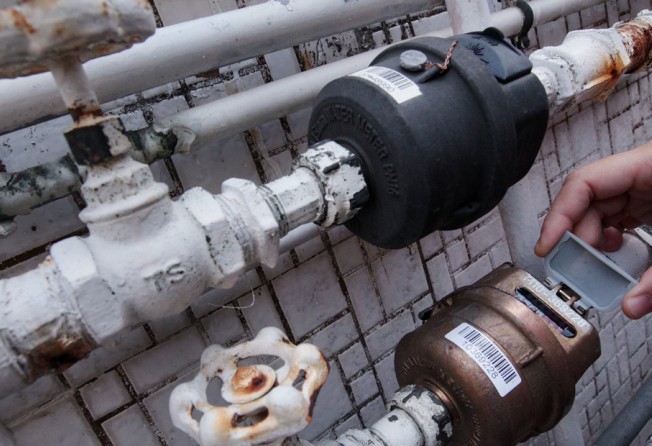Property owners 'paying for water supply through rates'
Critics of plan to raise water tariffs say property rates would then have to be cut as owners are offsetting HK$1 billion in government costs

Property owners who are indirectly financing the freshwater supply by paying general property rates should be entitled to a refund or lower duty if the government decides to increase the water tariff, critics of the idea say.
The concern over "double charging" for water came as an analysis of the Water Supplies Department's books showed that a significant proportion of the city's freshwater supply, some of which is provided to households for free each year, was being paid for by property owners through indirect tax revenue.
Last year, the water operating accounts received HK$3.5 billion collected through property taxes. That's because 15 per cent of total property tax revenue is transferred to the Water Supplies Department, as per a resolution passed in 1984.
It is the department's biggest revenue source, accounting for half of its total revenue. It well surpassed the HK$2.5 billion collected last year through direct water fees.
That 15 per cent allocation means that property owners have been paying for waterworks and supply, despite the fact that the property rate payable - calculated at 5 per cent of a property's rateable value - has no link to the amount of water consumed at the property.
If the money collected from property owners was factored into calculating the full-cost recovery ratio - revenue collected from the public compared to the total expenditure of the department - of water supply, the ratio could be increased from 30 per cent to 74 per cent.
Property owners are offsetting part of the department's costs not met by direct water charges to the tune of HK$1 billion. In 2012, the department's total expenditure hit HK$8.1 billion.
Dr Lam Pun-lee, a public utilities expert, said the city's water tariff should be raised as it is among the cheapest in the world. But he said any increase should be coupled with a corresponding decrease in the tax imposed on property owners.
"The current tariff is too low; it only encourages wasting water," said Lam.
"But to make it easier for the business sector and domestic users to accept a water bill increase, the [property] rate should be adjusted too."
Professor Carlos Lo Wing-hung, a Polytechnic University public policy researcher, agreed.
"If what the officials want is to make the user pay for what they use, the rate payment should be reduced accordingly. If they just want to recover more costs, they may keep the rate revenue," he said.
The Water Supplies Department's records show that 15 per cent of total property rates revenue was allocated to the department. That proportion was based on a resolution passed by the Legislative Council back in 1984 to offer a 15 per cent reduction in rates payable to households without freshwater supply.
The resolution still remains in force, though most of the population now has access to the supply.